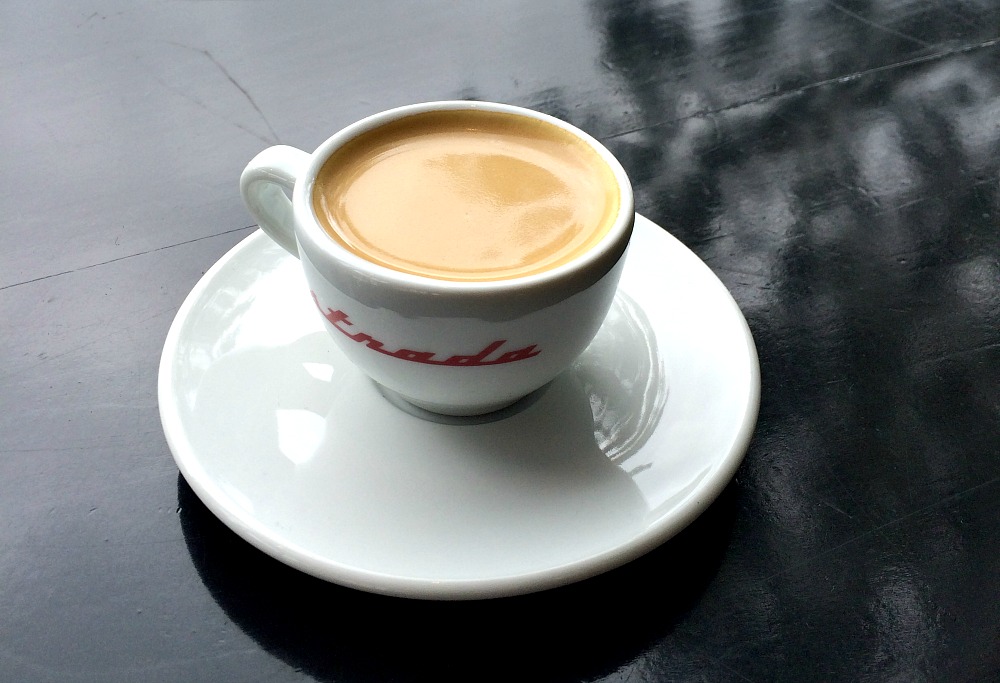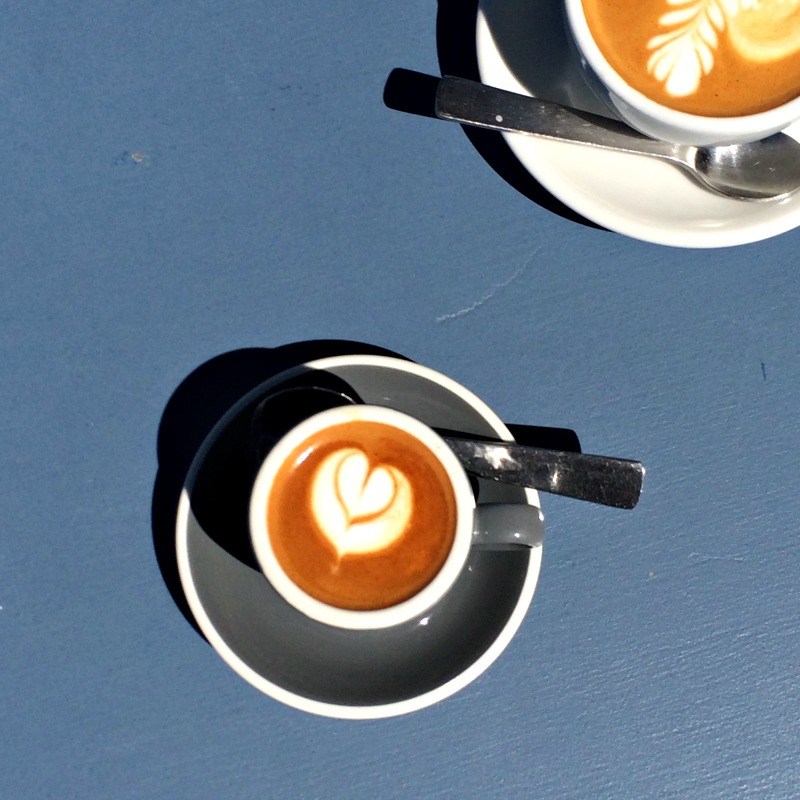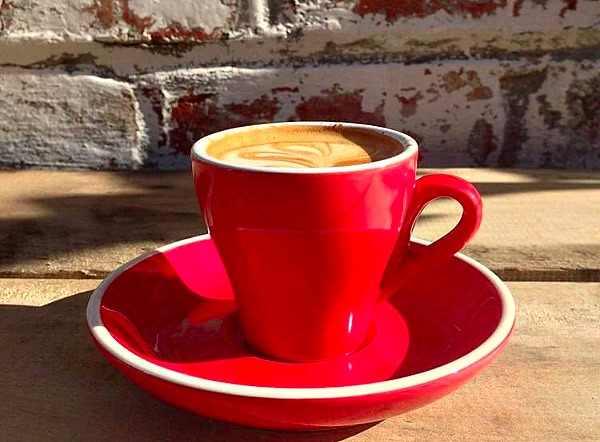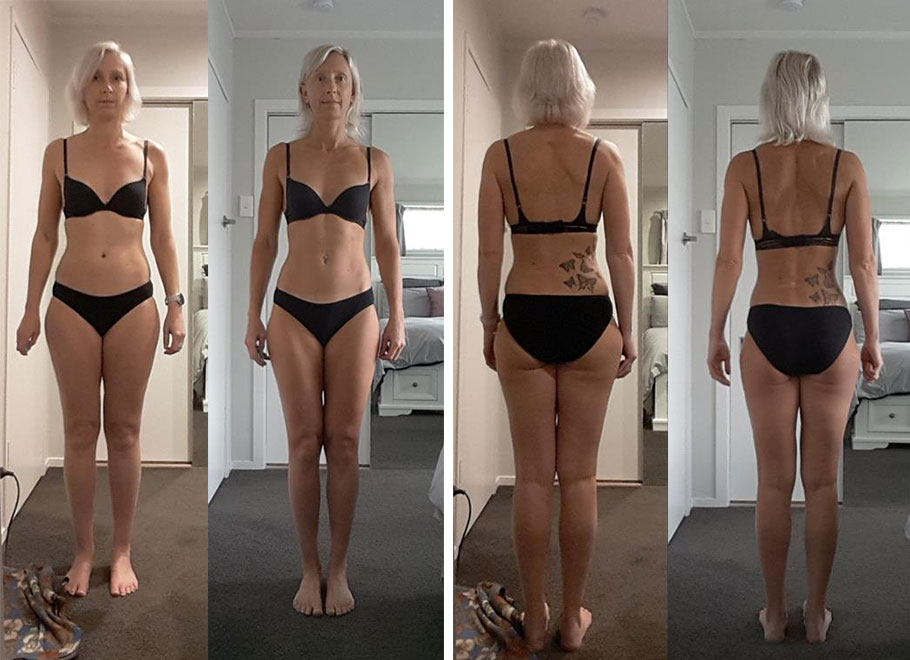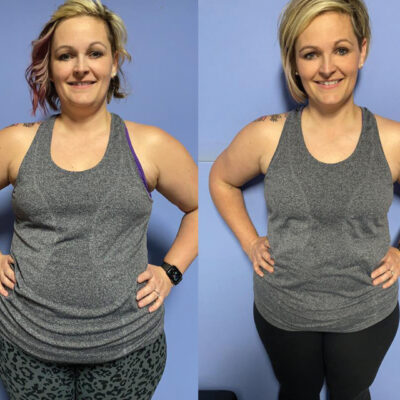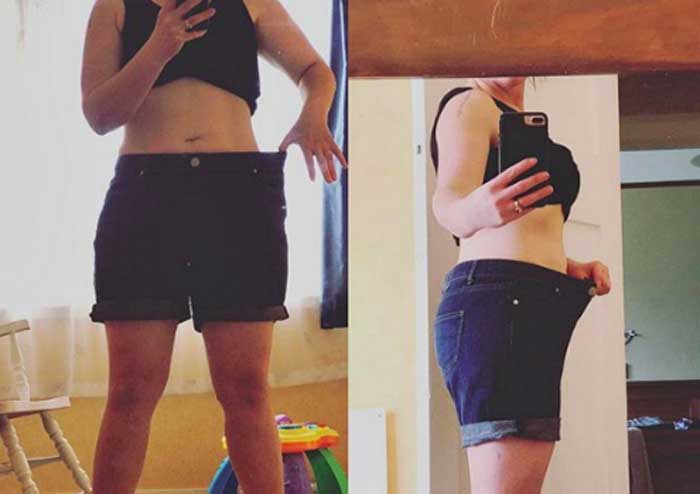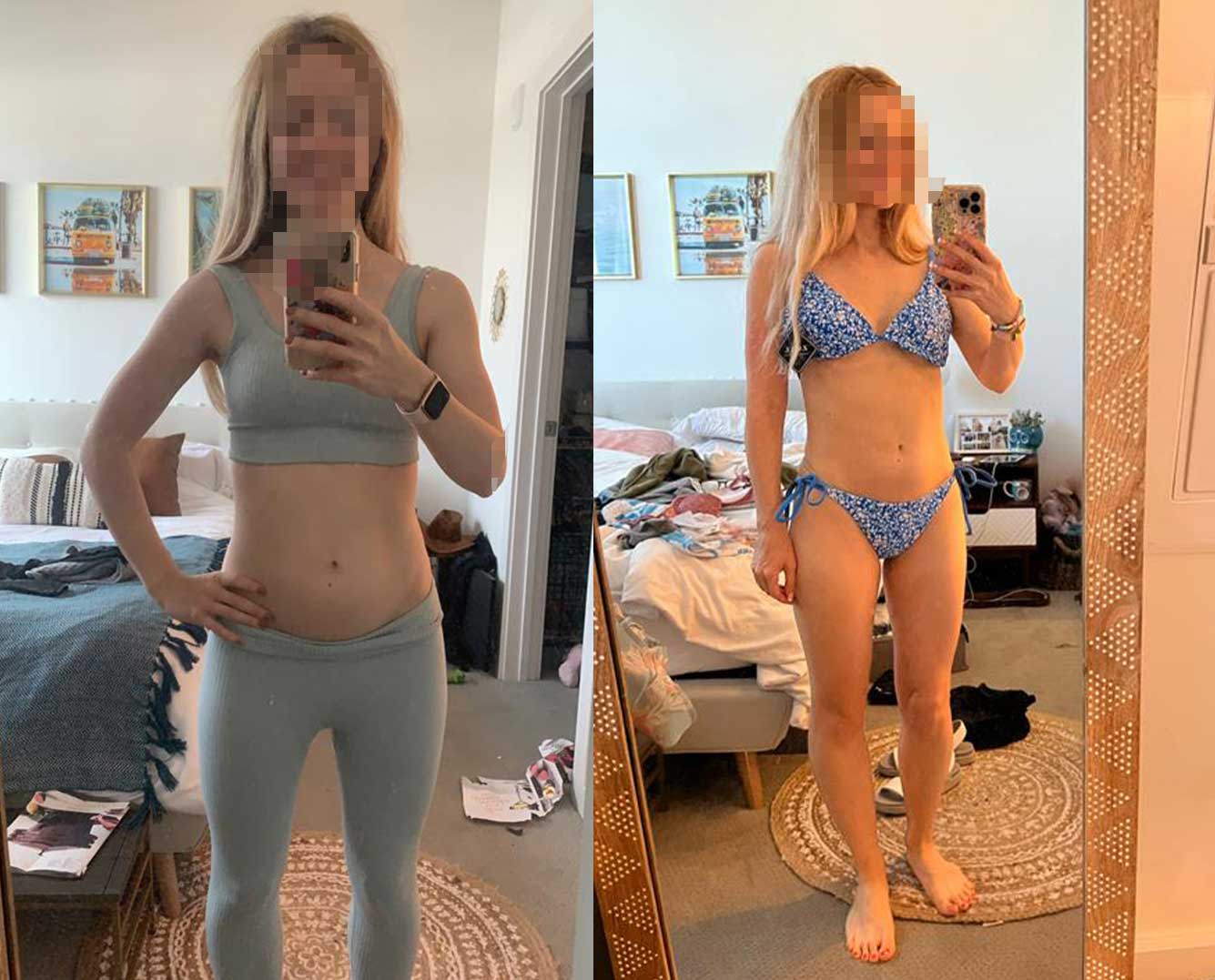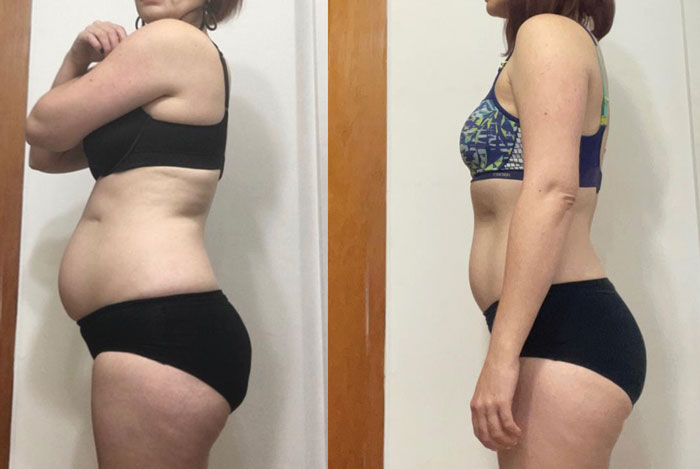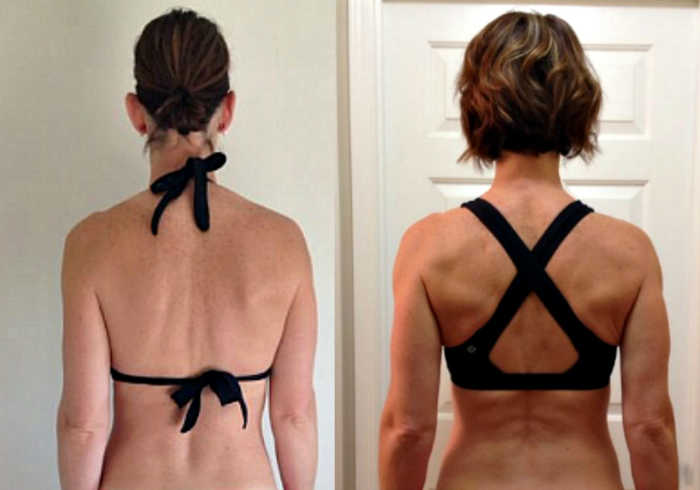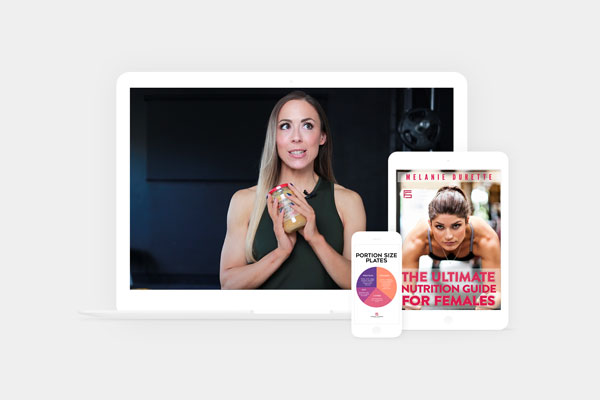Good Coffee = Happiness
I love good coffee. One of my favourite things to do is sit in a cafe sipping a perfectly poured piccolo. When traveling, I always make a point of finding the best baristas in every city I visit.
I’m super picky about my coffee. I special order my beans from a wholesaler and I’ve invested in a good espresso machine so I can make my own. These days I’m also experimenting with cold brew (which I’m actually drinking as I write this blog post). Sometimes I also add espresso shots or cold brew to smoothies or protein balls for an extra kick.
So, like you, I love my coffee and really good coffee makes me happy.
Espresso (Thrive Juice Co., Saskatoon, Canada)
How Much Coffee Is Too Much?
Coffee not only makes us feel happy but it also has many health benefits including:
- Helping with fat burning during exercise
- Increasing endurance during exercise
- Increasing wakefulness and focus
- Reducing risk of heart disease, Parkinson’s, Alzheimer’s and some cancers, and
- Providing you with a good dose of antioxidants.
So if coffee is good for you – how much coffee can you drink everyday? The answer is – it depends. It depends on things like:
- How your body handles coffee
- How stressed out you are
- How much caffeine you get from other sources during the day, and
- What you put in your coffee.
Let’s look at each of these to help you decide how much coffee you should have.
1. How your body handles coffee
Some people, largely due to genetics, process and clear caffeine from their system faster than others. If you are a “fast metabolizer” you probably just get a boost for a few hours and don’t notice any negative effects from having coffee. If you are a “slow metabolizer” you may notice that you feel more jittery, anxious or have trouble sleeping when you drink coffee.
Whether you are a fast or slow metabolizer of caffeine will impact on how you feel after drinking coffee and, therefore, how much you can drink.
Your genes also influence whether you get all those health benefits associated with coffee. For example, whether you have certain genes will impact on whether you get the preventative benefits of coffee against heart disease and Parkinson’s.
2. How stressed out you are
Caffeine can increase cortisol and that’s why a lot of health experts will tell you to avoid it. There’s some truth to this – especially if you are running yourself into the ground everyday and you’ve got some extra belly fat (which is associated with too much cortisol).
I like to take a middle ground when it comes to caffeine and coffee intake. Often a woman who is feeling overwhelmed and stressed out won’t feel like she has much pleasure in her life. I always say – if having a coffee is the one small source of pleasure or relief in your day then by all means – have your coffee.
If you are already stressed out, I don’t want you to stress out even more about having a cup of coffee.
But take it easy on the caffeine. If you are having more than three cups of coffee each day, you might want to pull back and try drinking some green, white or herbal tea instead (white tea has even less caffeine than green, herbal tea has none).
Avoid caffeine later in the day when it’s time for you to start unwinding and save your daily cup for when you need it the most. Try to choose a good quality coffee and sip it mindfully. Make it a treat and it might even help you to de-stress.
Piccolo Latte (Crazy Good, Napier NZ)
3. How much caffeine you get during the day
It’s not about how much coffee is too much but how much caffeine is too much.
Caffeine consumption can be classified as follows:
Low – 200 mg/day
Moderate – 200-400 mg/day
High – 400+ mg/day.
Here’s an estimate of how much caffeine is in your favourite beverage (keeping in mind that there can be a lot of variation caused by types of coffee beans, brewing time, water temperature, whether you are drinking a dark or medium roast, etc):
Brewed Coffee (Tall) – 145-200 mg
Espresso – 75 (single) -150 (double) mg
Black Tea – 50-75 mg
Green Tea – 50 mg
White Tea – 15-25 mg
Red Bull – 80 mg
Preworkout – usually cleaner formulas will have 125-200mg of caffeine while the hard out formulas from sports supplement stores will have 400mg
As a general rule, it’s probably a good idea to try not to have more than 400 mg of caffeine daily regardless of whether you are a fast or slow metabolizer. If you are super stressed out or a slow metabolizer, you may want to keep your consumption in the moderate 200 mg range.
Studies have had conflicting results as to the effects of caffeine pre-conception and during pregnancy but some research suggests 200 mg or more is associated with a higher miscarriage rate, Therefore, if you are pregnant or trying to get pregnant, it could be prudent to keep your caffeine intake under 200 mg.
4. What you put in your coffee
Obviously, sugar in your coffee is a problem (and that includes all those high calorie, decadent Starbucks coffees). Most of you know that.
What many women fail to consider is the amount of milk they consume if they drink a couple cups of coffee everyday.
If you use full fat milk and prefer big lattes, you could be taking in over 150 calories per cup of coffee. Multiply that by three cups, and you’ve got an extra 450 calories just from your coffee.
Unfortunately, low fat milk isn’t much better. I often find that women who drink milky coffees have a hard time keeping their daily sugar intake in a good range. One cup of milk, regardless of whether it’s high or low fat, has about 12 g of naturally occurring sugar.
Too much milk can also be a problem for women suffering from conditions caused by too much estrogen. I’ve written about how dairy can be problematic for some women if you aren’t sure.
Should You Quit Drinking Coffee Completely?
I’ve never told a client to quit coffee completely. Extreme measures often backfire because you can’t sustain them in the long run and you miss out on things that are pleasurable – often for no good reason.
If you are worried about it, use caffeine moderately and strategically. Keep your intake between 200-400 mg per day. Keep it under 200 mg if you know you are a slow metabolizer and don’t drink it too late in the day.
Be strategic with your coffee intake. Save your coffee for that time of day when you need a mental boost – before a big meeting or when you need to do some writing. Having some caffeine before a workout can give you a much needed boost but it also helps with fat burning, performance and stamina. Many of my clients like using an all natural preworkout such as MRM Driven which has 125 mg of caffeine. This is a good amount of caffeine for most women before a workout and shouldn’t leave you with any negative side effects. However, it’s a good idea to stay away from preworkout formulas that are full of artificial ingredients and have higher doses of caffeine (ie. some formulas have up to 400 mg of caffeine).
If calories/milk is your issue, ask for a piccolo – which is a small latte (also sometimes called a cortado). You’ll get about 60 ml of milk instead of a whole cup. Most good baristas know how to make them and, if not, just ask for a latte in a smaller cup.
Piccolo Latte (Chantal’s, Napier NZ)
Finally, if you’ve got your period, you may want to avoid coffee altogether. I find I can get away with about a single shot of espresso without milk or a small cold brew but anything more gives me cramps within an hour or two. That’s because caffeine has a vasoconstricting effect that can produce pelvic pain (and headaches too).
There’s a lot of conflicting advice out there and that’s because we are all different genetically and because certain lifestyle factors will also influence how quickly we clear caffeine from our body.
Remember, like everything with nutrition, it’s about figuring out what works for you. Use common sense. Pull back your coffee and caffeine intake if you need to but don’t stress out if you enjoy your daily cup of coffee just because some nutrition guru said it’s bad for you.
Life’s too short not to drink good coffee.


